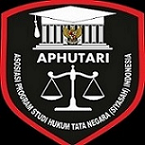Implementasi Persyaratan Calon Pemimpin dalam Undang-undang Nomor 6 Tahun 2014 pada pasal 33 Tentang Desa perspektif Fiqh Siyasah.
Abstract
This article discusses the implementation of the requirements for prospective leaders in article 33 of law number 6 of 2014 concerning villages in Natal District, Mandailing Natal Regency from the perspective of Fiqh Siyasah. The type of research used in this research is field research with an empirical normative legal approach. The data source for this research is the data source used is primary data, which is data obtained from the Secretary of Sikara-kara IV Village, head of RT, community of Sikara-kara IV Village. secondary data is data that includes documents, books, journals, articles and those related to research, while data collection techniques are through interviews, observation and documentation while data analysis techniques use descriptive qualitative techniques. The results of this study indicate that the Requirements for the Implementation of Candidate Leaders have not been implemented properly, in the sense that the law has not been complied with in the election of leaders in Sikara-kara IV Village, this needs to be corrected so that there are laws that must be obeyed or obeyed properly. From this research it can be concluded that the requirements to become a leader in Siyasah Fiqh studies must be fair, honest, trustworthy, intelligent, like the characteristics of the Prophet Muhammad SAW.
Keywords
Full Text:
PDFReferences
Referensi
a. Sumber Buku
Najib, Ainun, Kontruksi Pemimpin Ideal Untuk Indonesia” dalam Jurnal Agama dan Hak Asasi Manusia, Vol. 3 No. 1 Tahun 2013.
Syarif Mujar Ibnu, Fiqh Siyasah Doktrin Dan Pemikiran Politik Islam, (Jakarta: PT Gelora Aksara, 2008.
Sahadi, Otong Husni Tufiq, “Karakter Kepemimpinan Ideal Dalam Organisasi”, dalam Jurnal Moderat, Vol. 6. No. 3 Tahun 2020.
Undang-undang Nomor 10 Tahun 2008, Tentang Pemilihan Umum.
Hesti Irma Rahmawati, Analisis Kesiapan Dalam Implementasi Penerapan UU Nomor 6 Tahun2014 Tentang Desa, Universitas Cokroaminoto Yogyakarta, 2015
b. Sumber Jurnal
Muhammad Arsad Nasution, Walk Out Dalam Musyawarah Menurut Perspektif Al-Quran dan Hadits, Yurisprudentia: Jurnal Hukum Ekonomi, Vol. 4. No. 1 Tahun 2018.
Enghariono Desri Ari, Krakteristik Manusia Dalam Krakteristik Al- Qur,an, Jurnal Kajian Al-Qur’an dan Hadist, Vol 1, No 1 2020.
Harahap Ikhwanuddin, “Menelisik Asas Keadilan Dan Kesetaraan Gender Dalam Undang-Undang Nomor 23 Tahun 2004 Tentang Penghapusan Kekerasan Dalam Rumah Tangga Perspektif Islam", Yurisprudentia: Jurnal Hukum Ekonomi , Vol. 2 No. 1 Tahun 2016.
Kurniawan Puji, ‘Masyarakat Dan Negara Menurut Al-Faribi’, Jurna El-Qanuny: Jurnal Ilmu-Ilmu Kesyariahan Dan Pranata Sosial, Vol. 4, No. 1 2018.
Iffan, Ahmad dan Mustafid” Kajian sosial legal dalam pemahaman syariat islam dan hukum sosial terhadap peguatan perkawinan”, Jurnal el- Qanuniy: Jurnal Ilmu-ilmuKesyariahan dan Pranata Sosial, Vol. 7No. 1 Tahun2021
Khoiruddin Manahan Siregar , Pengaruh Undang-Undang Informasi dan Transaksi Elektronik (ITE) Terhadap Hubungan Masyarakat Dengan Pemerintah Di Kota Padangsidimpuan, Al-Maqasid: Jurnal Ilmu-Ilmu Ksyariahaan dan Keperdataan, Vol. 7, no. 2, 2021.
Syapar Alim Siregar, “Pengedar Narkoba Dalam Hukum Islam, Jurnal Al-Maqasid: Jurnal Kesyariahan Dan Keperdataan, Vol.5, No. 1, 2019.
Siregar Fatahuddin Aziz, “Langkah-Langkah Mengetahui Maqasid Asy-Syari’ah", Jurnal Al-Maqashid: Jurnal Ilmu Kesyariahan dan Keperdataan, Vol. 4 No. 1 Tahun 2018.
Siregar Sawaluddin, ‘Hakikat Kuliah Kerja Lapangan Dan Perubahan Masyarakat Kec. Dolok Kab. Padang Lawas Utara’, Al-Maqasid: Jurnal Ilmu-Ilmu Kesyariahan Dan Keperdataan, Vol. 5, No. 2 2019.
DOI: https://doi.org/10.24952/el-thawalib.v3i6.6657
Refbacks
- There are currently no refbacks.









Editorial Office Board :
Kampus UIN Syekh Ali Hasan Ahmad Addary Padangsidimpuan
Jl. T Rizal Nurdin No.Km 4, RW.5, Sihitang, Padangsidimpuan Tenggara, Kota Padang Sidempuan, Sumatera Utara 22733
 Jurnal El-Thawalib is licensed under a Creative Commons Attribution-ShareAlike 4.0 International License.
Jurnal El-Thawalib is licensed under a Creative Commons Attribution-ShareAlike 4.0 International License.
View My Stats






